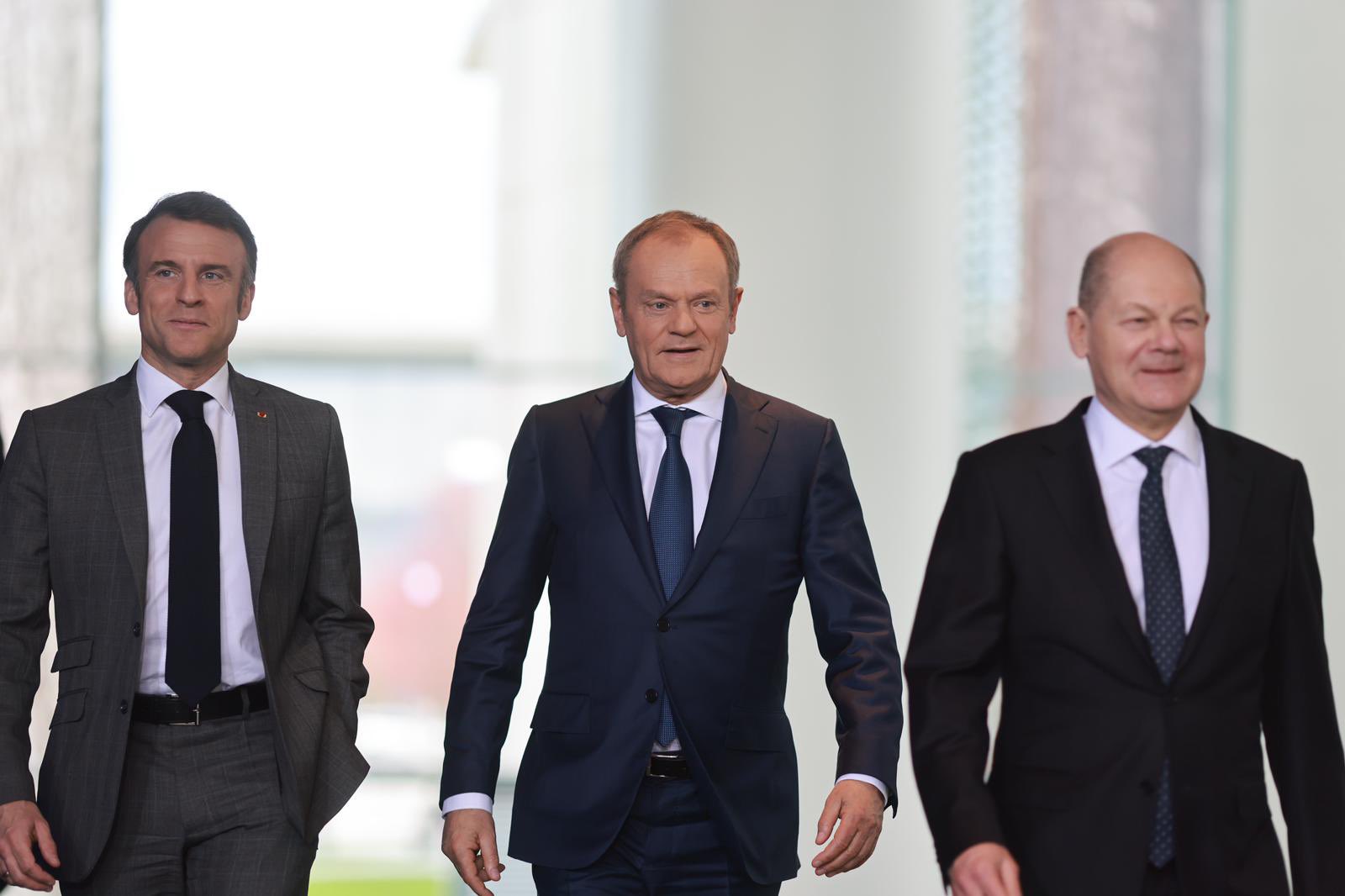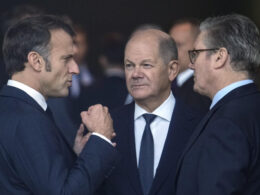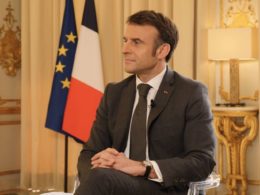On 15 March, French President Emmanuel Macron, German Chancellor Olaf Scholz, and Polish Prime Minister Donald Tusk convened in Berlin for a Weimar Triangle meeting to discuss and coordinate further military support for Ukraine.
In recent weeks, Macron has ramped up anti-Russia rhetoric that has caused tensions with some allies. He remarked that Europe must not be “cowards” against Russian aggression and said Western ground troops in Ukraine could not be “ruled out,” later adding
that “we cannot afford to set limits for ourselves in the face of an enemy who sets no limits.”
The French President did not comment on his position regarding the possibility of sending troops to Ukraine but stressed a unified stance against initiating escalation.
"We will do whatever is necessary to prevent Russia from winning this war. We will continue to support Ukraine and its people as much as needed and, as from the first day, we will not initiate any escalation. But our determination is firm. This also includes our unity, and therefore we have taken decisions on several initiatives and, working together on very specific things," RFL/RL cited Macron’s speech after the meeting.
Chancellor Scholz reiterated Germany's support for Ukraine, emphasizing the country's commitment alongside France and Poland to ensure Ukraine's effective defense against Russian aggression.
"One thing is clear: we support Ukraine. It is also clear that we are not at war with Russia. Our common goal remains to ensure that Ukraine can effectively defend itself against Russian aggression. Germany, France, and Poland are committed to this together with their allies and partners in Europe and beyond the Atlantic. And we will not shy away from our obligations," he emphasized.
Scholz outlined several recently agreed initiatives, including purchasing more weapons for Ukraine, expanding military equipment production, creating a new coalition for long-range rocket artillery, and increasing support within the European Union with a €5 billion fund for reimbursement to member countries for provided weapons.
According to the German Chancellor
, the allies will use "profits from Russian assets frozen in Europe to financially support the purchase of weapons for Ukraine.”
Polish Prime Minister Tusk thanked Macron and Scholz for their immediate and intense support for Ukraine, highlighting the importance of financial aid and assistance to improve the situation in Ukraine in the coming weeks. Tusk also announced that the next Weimar Triangle meeting would be held in Poland in a few months, calling the current talks a "good new beginning for the Weimar Triangle."
Read also:
- Sweden donates maritime surveillance jet skis to Ukraine
- Czech-led shell initiative for Ukraine bolstered by Portugal’s €100 million pledge
- Greece negotiates deal with Czechia for ammunition transfer to Ukraine
- Macron: peace in Europe requires preparation for war
- Borrell: Outcome of Russia-Ukraine war ‘will be decided this spring and summer’




